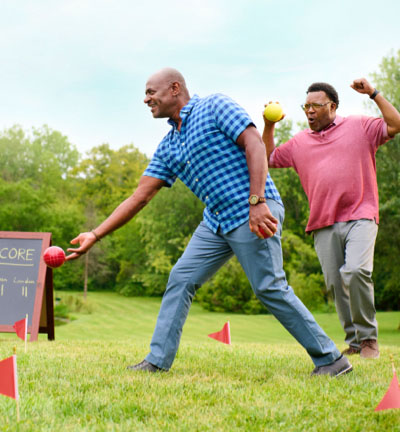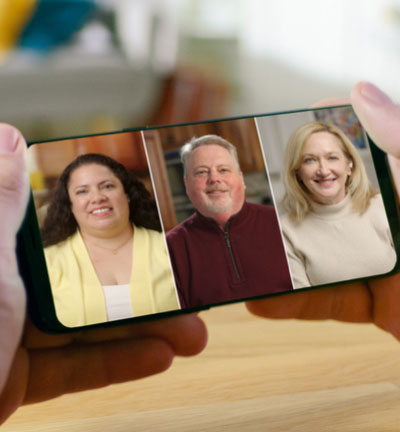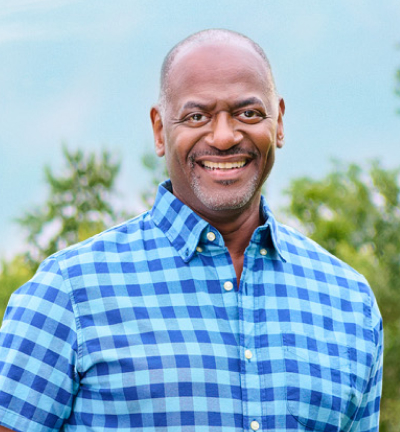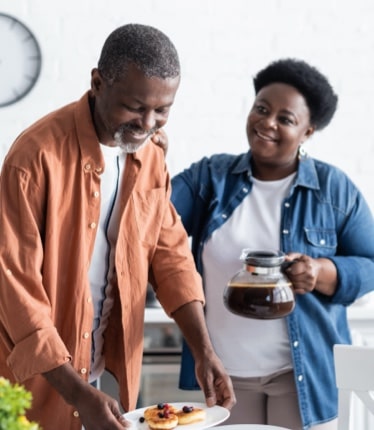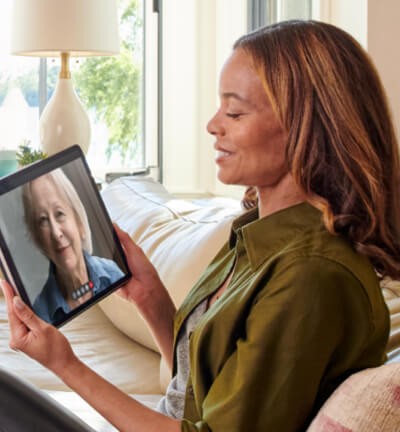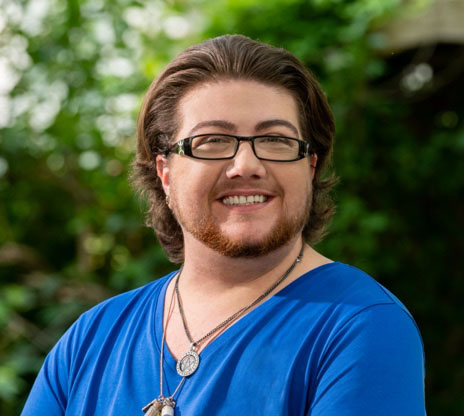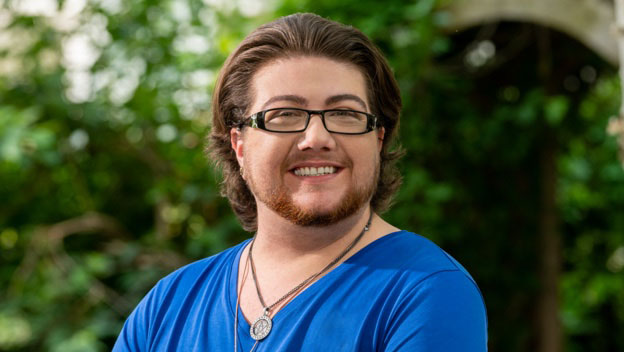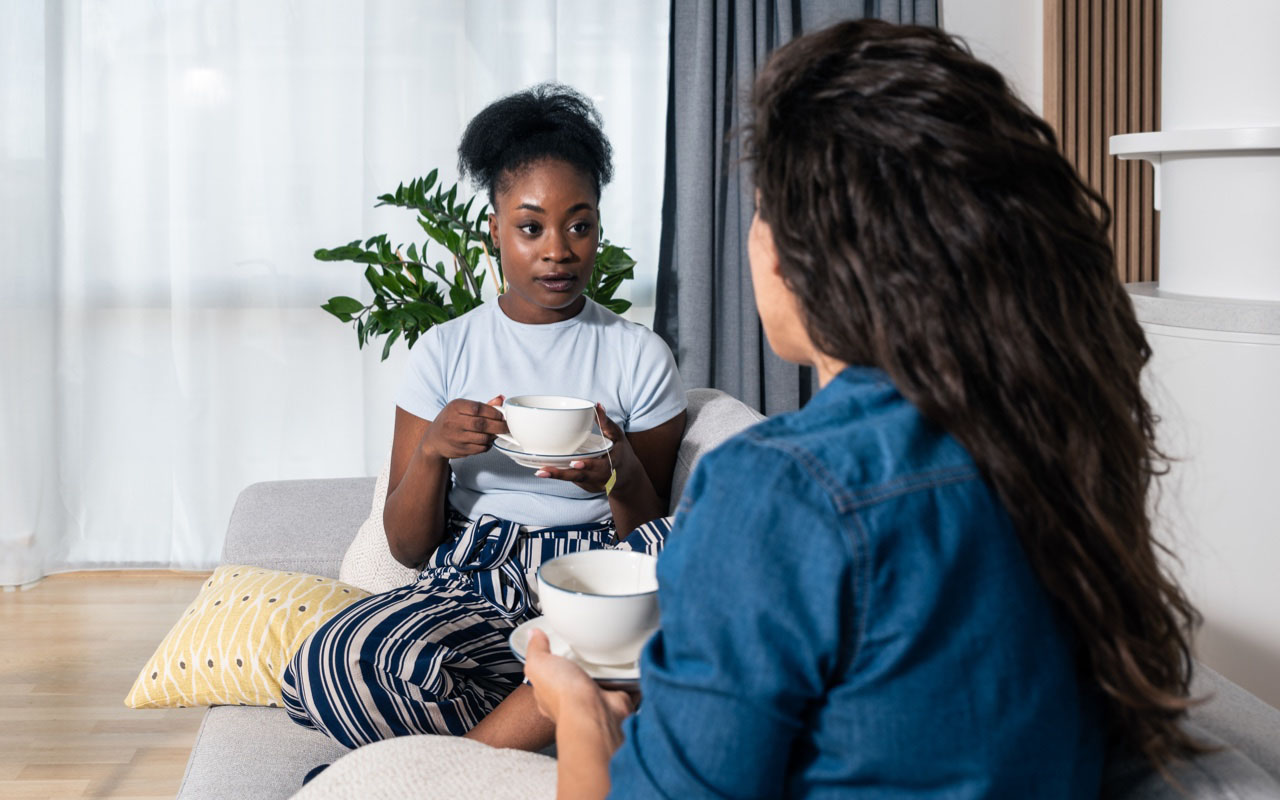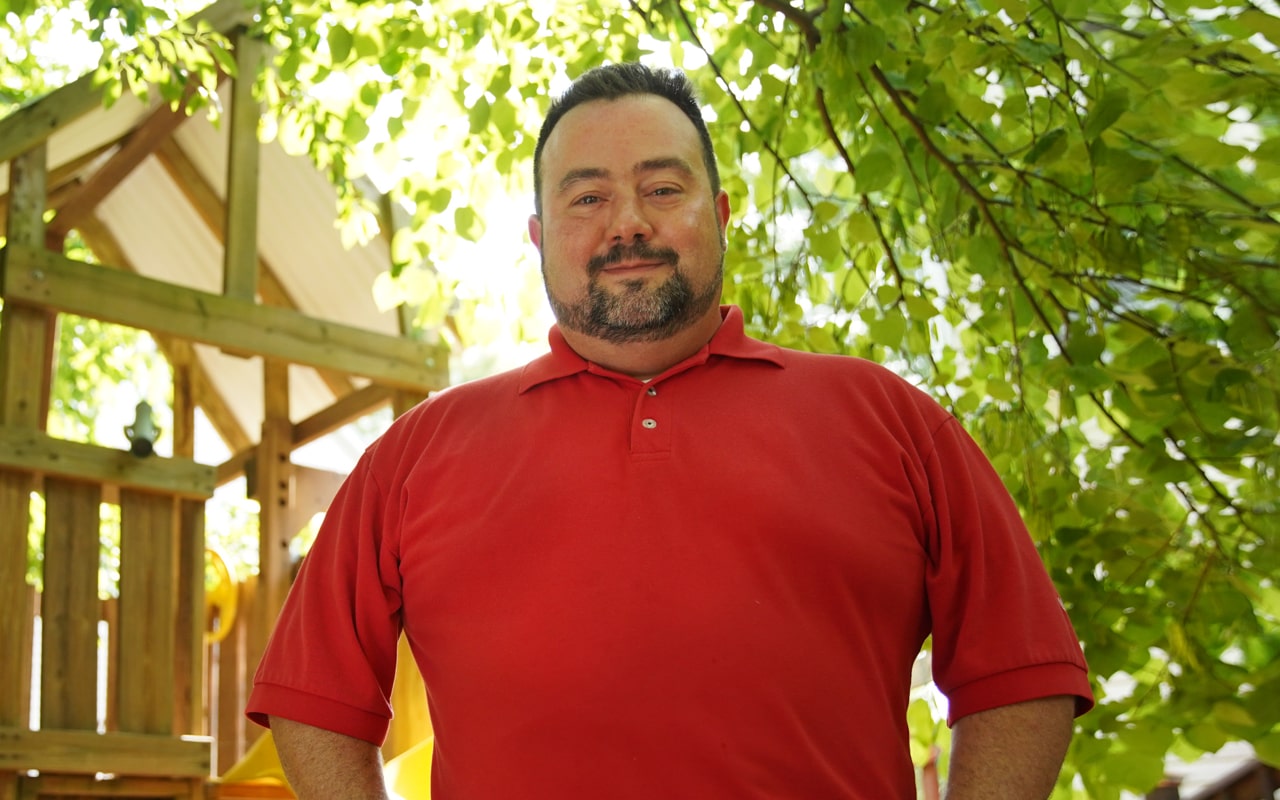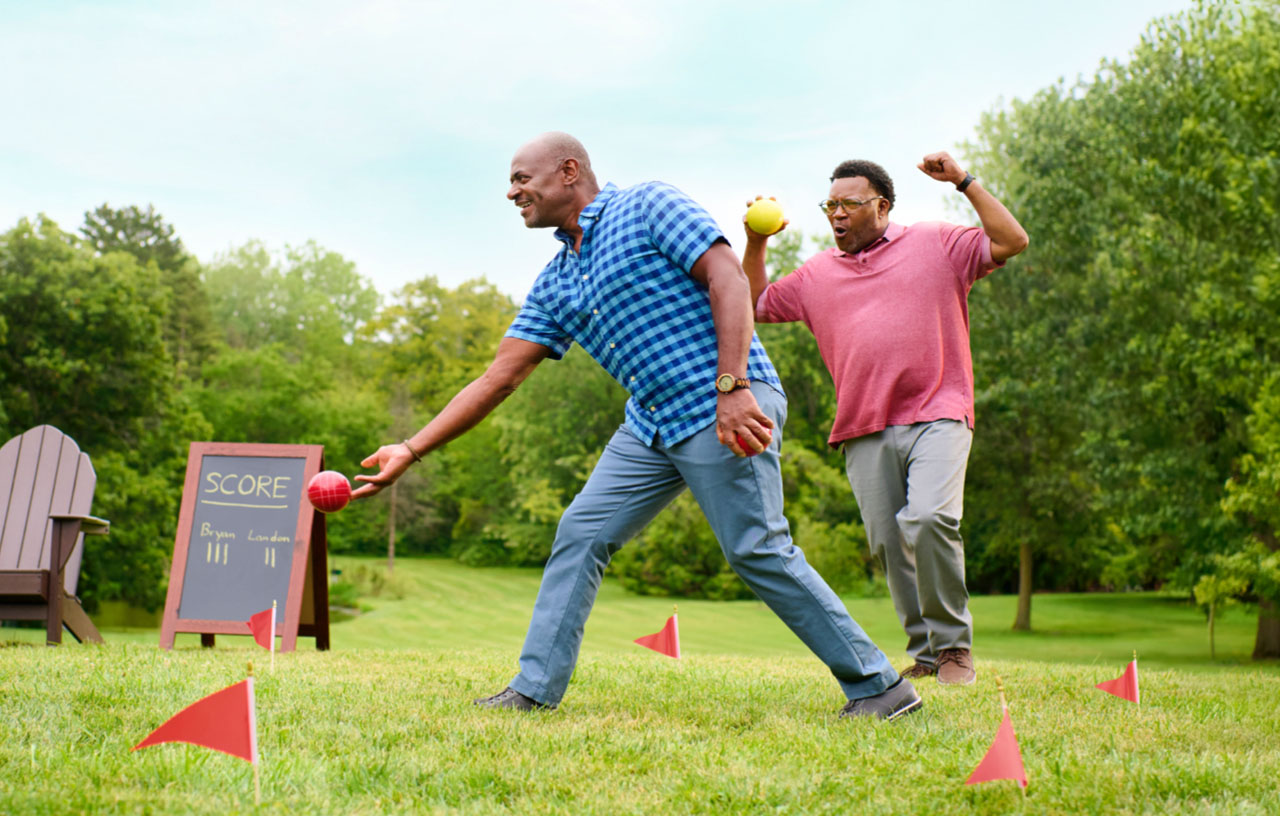I got the call saying, ‘You were diagnosed with MG.’ That was huge. I’ve always known something was different, but I didn’t
know what it was.
Even before learning about his diagnosis, Aiden-Lee was working in disability advocacy, something he’s continued to this day. He actively seeks out some opportunities, such as running a local LGBT+ disability group, while other opportunities come about naturally.
Being a big Dungeons & Dragons (D&D) fan, Aiden-Lee (who even has an MG and D&D tattoo) was part of a D&D Facebook group. When a person posted a wheelchair in the group to be used within the game, Aiden-Lee was shocked at the backlash the post received. As D&D is a role-playing game, some commenters were questioning the purpose of a wheelchair, with “Why wouldn’t you simply imagine your character as able-bodied?” being their line of thought. Aiden-Lee, on the other hand, wrote a comment supporting the importance of representation. That’s when he noticed another group member doing the same.
 Aiden-Lee enjoying time at home
Aiden-Lee enjoying time at home
Aiden-Lee and the fellow commenter decided to co-create a Facebook group of their own for people with disabilities. In 12 hours, they had over 100 members, and now they have nearly 300. The group is a space for anything disability related. Sometimes the group discusses disability representation on their favorite TV shows or what disability accommodations will be available at upcoming conventions. “We still have it going two years later now,” Aiden-Lee said about their Facebook group. “And she and I are really good friends still to this day,” he added about his co-creator.
Even when it’s not easy, Aiden-Lee tries to stand up for people with disabilities and educate his community. He describes a time where he used his voice while at the DMV even though he felt invisible.
Using his voice to stand up for others comes naturally to Aiden-Lee. Growing up, he was bullied. “I want to help others, because I know what it is like,” he expressed, “and I don’t want others to feel what I feel.”
Aiden-Lee mentions that situations like his encounter at the DMV, where a man mentioned that a woman didn’t “look” disabled, happen quite often. “People think that if you have a certain disability or way of life, you need to fit in a certain box,” he said, “People should try to be more caring and not judge right away based off of looks.”
On top of that, Aiden-Lee’s talent and willingness to educate can turn a potentially awkward moment into a teachable one. “If someone asks, ‘Oh, why do you need the cane?’ or ‘Why do you need a scooter?’ I tell them everything and anything,” he said, “and that’s also why I like having my tattoo.”
If you’re trying to speak up for yourself, even little things, like saying ‘That’s not okay’ or ‘That’s not true,’ that’s big.
Looking toward the future, Aiden-Lee plans on keeping his positive outlook and passion for helping others alive. “When I was younger, I wanted to be an animal trainer and zoologist,” he reflected, “I was doing everything I could and then my MG got worse. But MG gave me this life that I would have never had. I've made so many friends and had so many opportunities. I’ve been able to do so many things and help so many people.”


